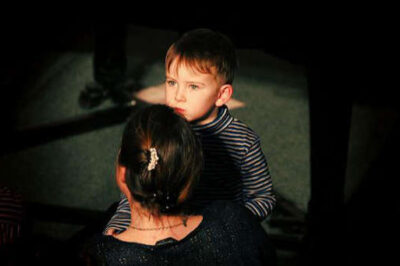Early in life it became clear that my little girl, Bethany, loved pleasing people. If what she wanted was not what others wanted, she’d give in to the energy of whomever it was she was eager to please.
This is a great trait when obedience to a parent was the issue, but not so great when it came to standing up for herself on the playground. For a short season, I would figuratively pat myself on the back whenever Bethany quickly and willingly did what I asked. What a great parent I was! Or not.
Maybe the way kids respond to our parenting is not as much about our great—or not so great—parenting as it is about the combination of their personality, developmental stage and, in Bethany’s case, fear of disappointing.
As I thought more deeply about it, I realized that in order to keep the peace and please people, Bethany would say yes to things that it might be best for her to say no to. For example, her grandma used to love to give Bethany a big kiss every time she saw her. Not just any kiss, but a big sloppy wet kiss.
I knew that Bethany hated how this felt, but that she was more interested in pleasing Gramma than in standing up for herself. So she’d let Gramma kiss her, and then get anxious every time it was time to visit Gramma.
At first I didn’t think it was a significant issue. But as I looked into her future it occurred to me that the sooner Bethany learned to stand up for herself when appropriate, the stronger she would be to set good boundaries for herself as she grew up. So, I invented the “not the way it works” game.
The inspiration for the game came from Gramma, who before kissing 5-year-old Bethany would say, “If you love me, you’ll give me a big kiss!” See what she did there? Of course, Bethany wanted no part of not loving Gramma, so she’d oblige, even though she didn’t like the kiss. Imagine how this could play out over time with others—particularly with young men. Not that any young man would ever use that phrase on my precious offspring—but just in case—the “not the way it works” game was born.
It started out simply enough. “Bethany,” I’d say from the comfort of my recliner, “If you love me, you’ll go get me a blanket.” She’d bring the blanket and then I’d say, “Good. Now, if you love me, you’ll give me a big kiss!” and I’d pucker up. I could see the discomfort of her tension, wanting to please, but not wanting my spit on her face. Just as she reluctantly turned my way I’d say, “Bethany. It’s OK to say no to this if you don’t want a kiss because you can love me but not kiss me. So give it a try.”
It was hard for her at first, so I kept coaching her, several times a week, to say, “I love you daddy, but that’s not the way it works!” I did it with fetching slippers, or scratching my back. Little by little she became more comfortable saying no.
The big test came when it was time to go to Gramma’s. I worked with Bethany to respectfully let Gramma know that she was loved, but that Bethany didn’t want a kiss. Bethany practiced, “I love you Gramma, but that’s not the way it works. Can we just hug instead?” We high-fived!
When it was time Bethany followed the script perfectly. Gramma seemed hurt and later asked, why won’t Bethany kiss me? I encouraged her to ask Bethany directly, which she did. Bethany responded, “I don’t like lip kisses. I just like hugs.” That seemed good enough for Gramma and has never been an issue since, and Bethany stopped being anxious about going to Gramma’s.
Over the years, I have played the “If you love me” game less frequently. Even into her 20s, I’d play it once in a while as a throwback, and Bethany still answers with confidence, “That’s not the way it works!” The best news is that when pressed by young men to do things she’d rather not do she gives the same answer—with confidence.
I realize in the writing of this that there is a fine line between obeying parents and being manipulated by parents. Using this strategy over the years helped me better define that line and stay respectful not just of Bethany but also of all three of my kids when making parental requests.
Today, Bethany has a healthy view of authority and sets good boundaries for herself in relationships of all kinds.
She’d tell you today that she still struggles a bit with people pleasing, but that it’s never gotten her in any regrettable trouble. And she’ll also tell that Lynne and I both helped her learn what love without strings is all about, and she’s now making great relationships choices as she forges her way through life. {eoa}
Jim Jackson and his wife, Lynne’s, ministry purpose is to inspire and equip parents to embody God’s grace and truth in compelling ways. Learn more about their ministry at www.connectedfamilies.org or check out their recent book, Discipline That Connects With Your Child’s Heart: Building Faith, Wisdom, and Character in the Messes of Daily Life.







Leave a Comment
You must be logged in to post a comment.